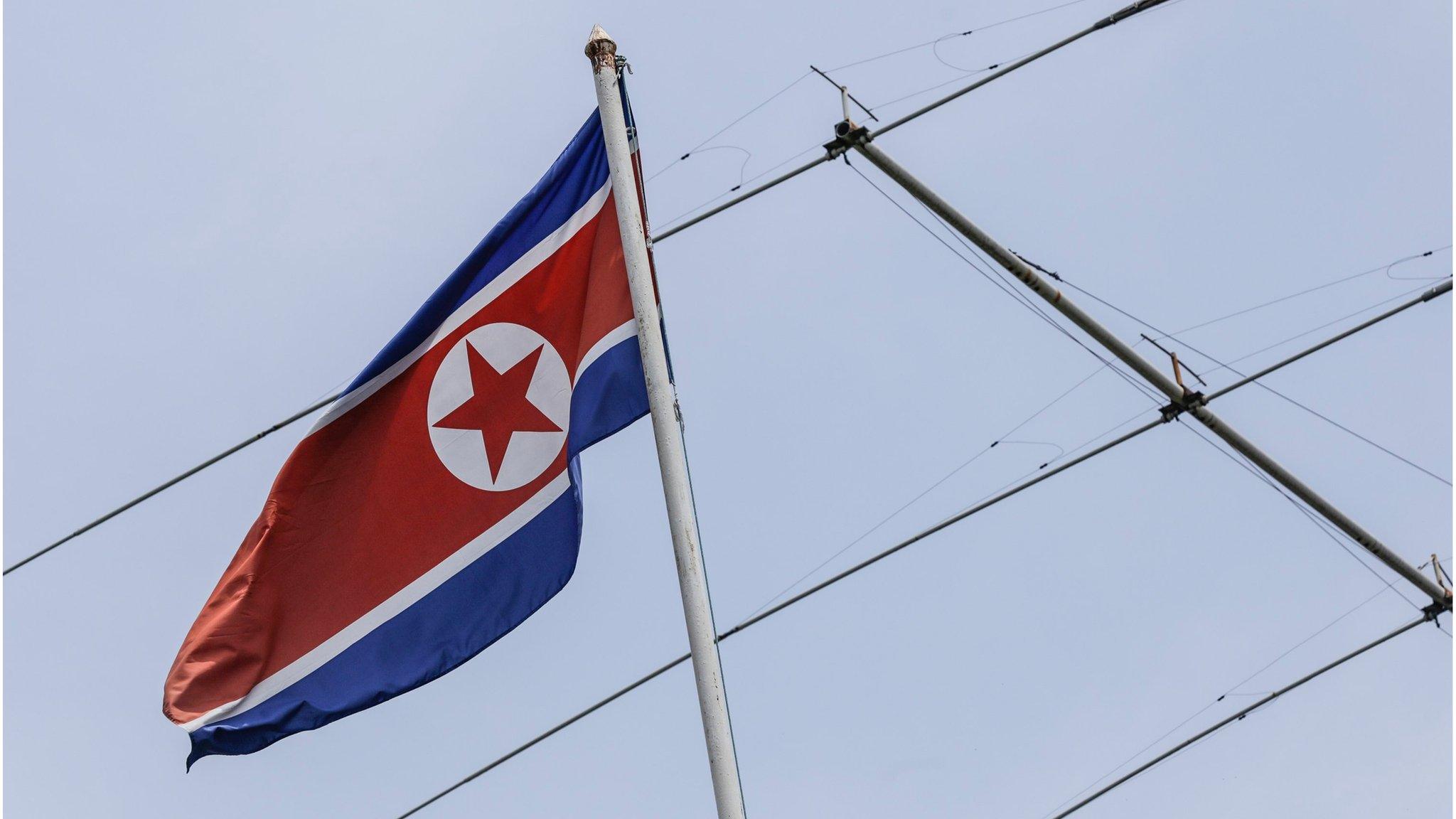Kim Jong-nam murder: Women plead not guilty in Malaysia trial
- Published

Vietnamese Doan Thi Huong (left) and Indonesian Siti Aisyah (right) are accused of killing Mr Kim
Two women have pleaded not guilty to murdering Kim Jong-nam, the half-brother of North Korea's leader, as their trial in Malaysia got under way.
The brazen nature of his killing, using the highly toxic VX nerve agent as he waited for a flight at Kuala Lumpur airport in February, shocked the world.
Vietnamese Doan Thi Huong, 29, and Indonesian Siti Aisyah, 25, are accused of rubbing the chemical on his face.
The pair say it was a TV prank and they were tricked by North Korean agents.
Pyongyang has denied any involvement in the killing, but in court prosecutors said that four men - believed to be four North Koreans who fled Malaysia on the day of murder - were also charged in the case.
The incident led to a bitter diplomatic row and strained the once cordial ties between North Korea and Malaysia, which expelled each other's ambassadors.
What happened at court?
The trial has been eight months in the making and the two women are the only suspects actually charged so far with the murder of Kim Jong-nam.
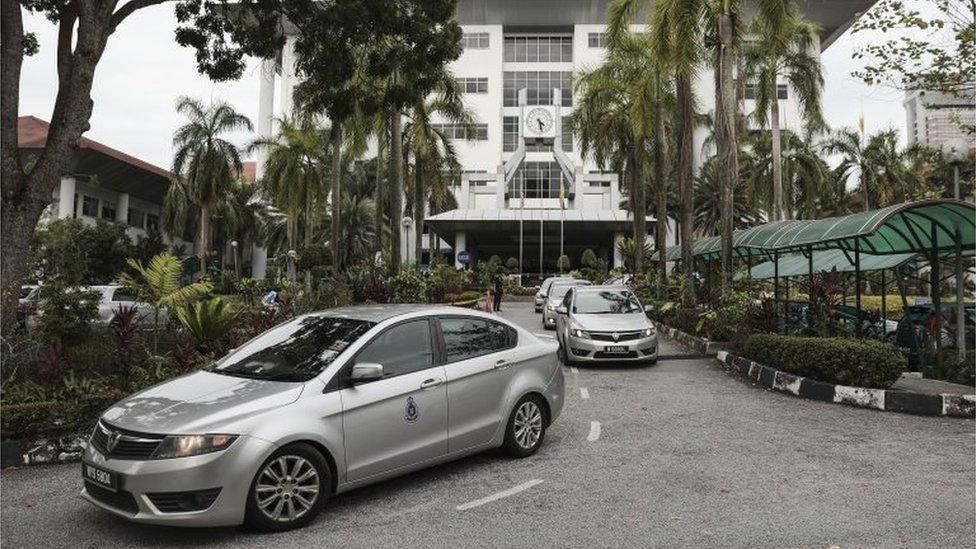
Police cars believed to be carrying the two women are seen leaving court in Shah Alam, Malaysia
With their heads bowed and wearing handcuffs and bullet-proof vests, the women walked past a horde of journalists gathered outside the court in Shah Alam, outside Kuala Lumpur.
After the charges were read to them in court in Indonesian and Vietnamese, the two women entered their pleas through interpreters.
If found guilty, the women face the death penalty. Their defence lawyers are likely to argue that the real culprits are North Korean agents, who left Malaysia.
Why was North Korea's Kim Jong-nam killed?
But in his opening remarks, the prosecutor said he aims to prove that the women, along with four people still at large, had the "common intention" to kill Mr Kim.
He said the women had carried out practice runs in Kuala Lumpur shopping malls before the attack, under the "supervision" of the four people, who were not named in court.
Dozens of witnesses, including airport staff who came into contact with Mr Kim, are expected to take the stand in the trial which will run for weeks.
Why was the murder so shocking?
The murder is notable for its sheer audacity, taking place as it did mid-morning in full view of security cameras at Kuala Lumpur's airport.
On 13 February the two women were seen threading through crowds of people and accosting Mr Kim, before rubbing their hands on his face.
The CCTV footage shows a woman in white lunging at a man
Then there was the speed with which Mr Kim died. Immediately after the attack he sought help from airport staff, who led him to a clinic, but he collapsed and died just minutes later.
After a post-mortem examination, Malaysian authorities announced he had been killed by VX, a toxin so lethal that it is classified as a weapon of mass destruction by the United Nations.
How is North Korea involved?
The two women, who were arrested days after the killing, have insisted that they were tricked by North Koreans into taking part in what they thought was a TV prank. Four North Korean men who fled Malaysia shortly after the incident are believed to suspects. Interpol issued "red notices" for their arrest in March.
Malaysia has named and questioned other North Koreans in relation to the case.
But authorities also allowed three of them to leave the country in late March, in return for North Korea releasing nine Malaysian diplomats and their families.
What does the case tell us about North Korea?
Mr Kim, who was in his mid-40s, was the estranged older half-brother of North Korean leader Kim Jong-un.
At the time of his death, he was believed to have been living in self-imposed exile in Macau and was thought to have had some links to China.
Some believe he was killed because he was seen as a potential leader-in-waiting, and therefore a threat to his younger brother, but many analysts have dismissed this.
As with much concerning North Korea, the real motivations behind Mr Kim's murder are likely to remain unclear.
- Published24 February 2017
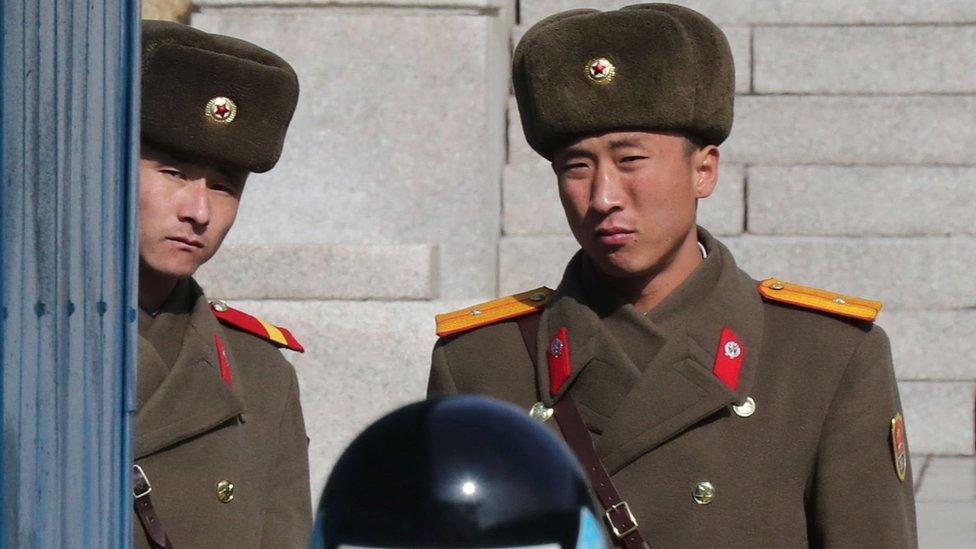
- Published28 May 2017

- Published25 February 2017
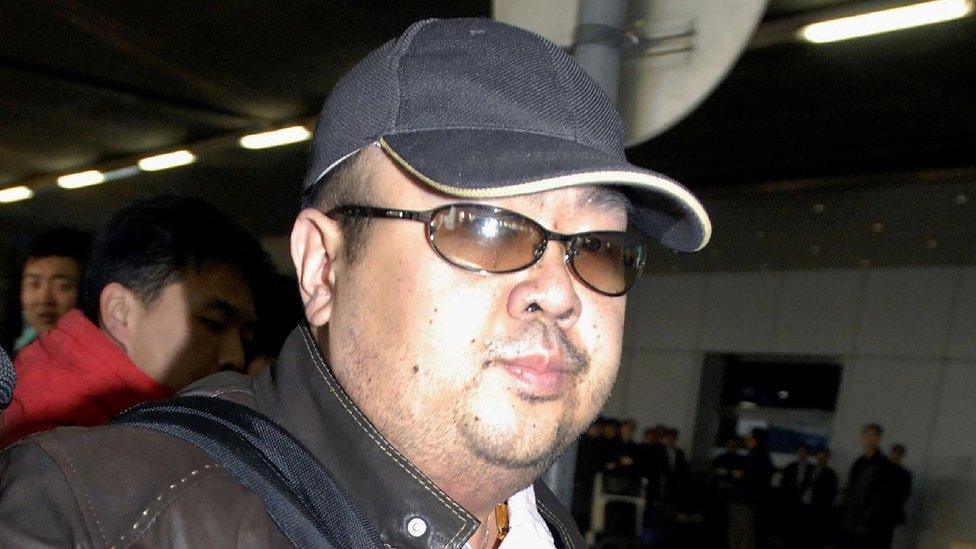
- Published2 October 2017
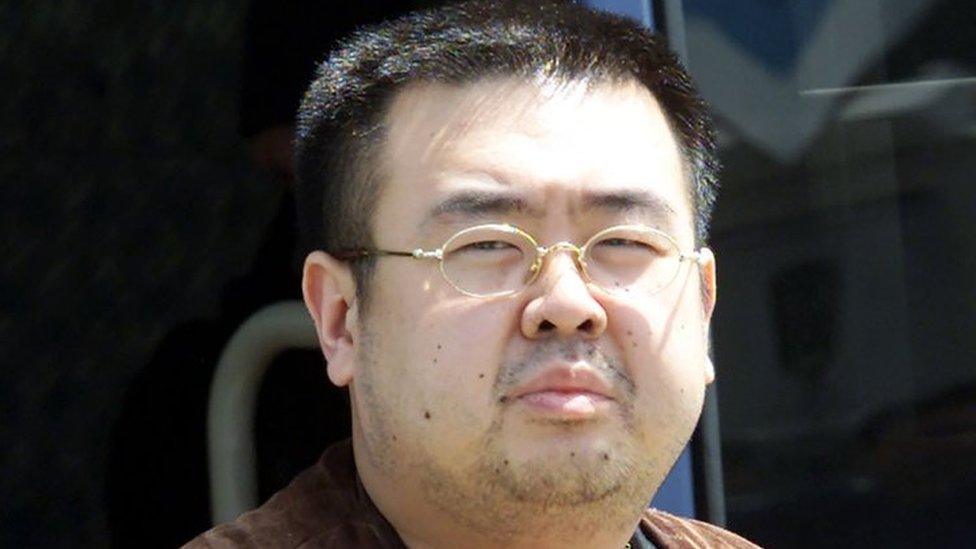
- Published14 February 2017
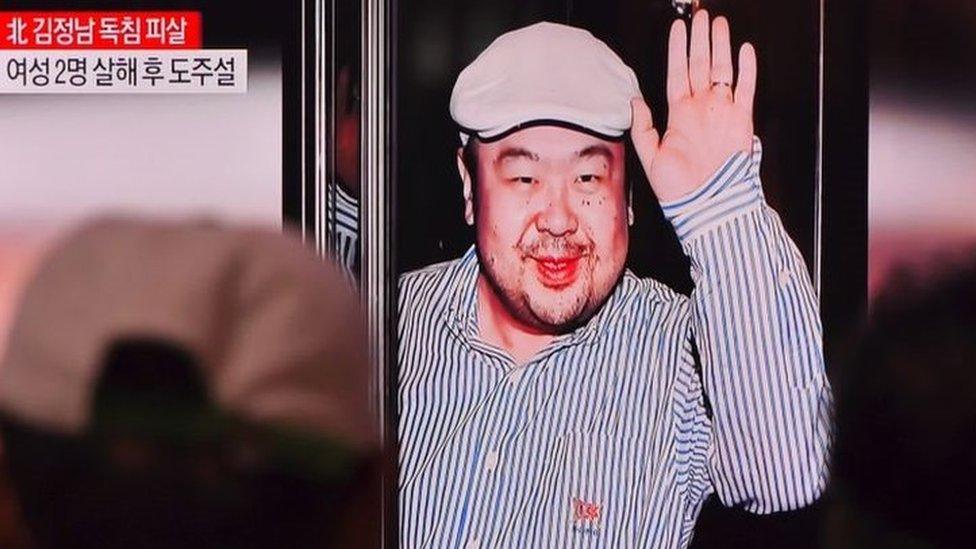
- Published9 March 2017
